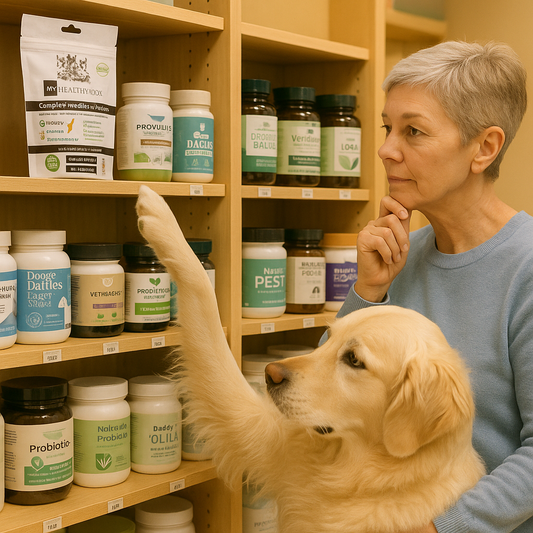The French Bulldog, affectionately known as the "Frenchie," is a popular breed beloved for its distinctive appearance and delightful personality. Small yet sturdy, French Bulldogs make wonderful companions for a variety of households. In this article, we delve into the origins, appearance, temperament, and care requirements of the French Bulldog, providing a comprehensive guide for prospective owners.
Breed Summary
Origin and History
The French Bulldog originated in England and was developed as a smaller version of the English Bulldog. During the Industrial Revolution, lace workers from Nottingham moved to France, bringing their small bulldogs with them. These dogs were crossed with local breeds, resulting in the charming French Bulldog we know today. Initially popular among the working class, French Bulldogs soon captured the hearts of the French elite, and their popularity spread across Europe and America.
Appearance
French Bulldogs are small, muscular dogs with a compact build. They typically weigh between 16 to 28 pounds and stand about 11 to 12 inches tall at the shoulder. One of their most distinctive features is their "bat ears," which stand erect and give them an alert expression. Frenchies have a short, smooth coat that comes in a variety of colors, including brindle, fawn, white, and various combinations of these. Their large, expressive eyes and wrinkled face add to their unique and endearing appearance.
Temperament
French Bulldogs are known for their friendly, affectionate, and playful nature. They form strong bonds with their families and are especially good with children, making them excellent family pets. Despite their small size, Frenchies are sturdy and adaptable, thriving in both city and country environments. They are also known for their comical and mischievous behavior, which adds to their charm. French Bulldogs are generally well-behaved, though they can be a bit stubborn, so consistent training and positive reinforcement are essential.
Health Outlook
The French Bulldog typically has a lifespan of 10 to 12 years. While generally healthy, they are prone to certain health issues due to their brachycephalic (short-nosed) structure. Common problems include breathing difficulties, hip dysplasia, and skin conditions such as dry, itchy skin. Regular grooming and the use of premium dog shampoos designed to moisturize and soothe sensitive skin can help manage these issues. Routine veterinary check-ups are crucial to monitor their health and address any concerns promptly.
Nutritional Requirements
A balanced diet is essential for maintaining the health and vitality of French Bulldogs. High-quality dog food that is rich in protein and low in fat is ideal. Additionally, incorporating a complete multivitamin can ensure they receive all necessary nutrients, promoting overall health and longevity. Fresh water should always be available to keep them hydrated. Due to their tendency to become overweight, portion control and regular exercise are important.
Exercise Requirement
French Bulldogs have moderate exercise needs. Daily walks and short play sessions are sufficient to keep them healthy and happy. They enjoy interactive toys and games that stimulate their mind and body. However, due to their brachycephalic structure, they can overheat easily, so exercise should be moderate and during cooler parts of the day. French Bulldogs also enjoy relaxing and lounging around, making them perfect for less active households.
Pros and Cons of Owning the Breed
Pros:
- Friendly and affectionate, great family pets.
- Low exercise needs, suitable for various lifestyles.
- Adaptable to both city and country living.
Cons:
- Prone to certain genetic health issues.
- Can be stubborn, requiring consistent training.
- May have breathing difficulties due to their short nose.
Space Requirements
French Bulldogs are well-suited to apartment living due to their small size and moderate exercise needs. They do not require a large yard, but they do enjoy having a secure space to explore and play. Their adaptable nature allows them to thrive in both small and large living environments.
Suitability for Elderly
French Bulldogs' calm and affectionate nature makes them excellent companions for the elderly. Their low exercise needs and easygoing temperament provide companionship without being overly demanding. However, potential owners should be prepared for regular grooming and healthcare needs.
Suitability for Kids
French Bulldogs are great with children, displaying patience and playfulness. They enjoy interacting with kids and can be protective of their young family members. Supervised interactions, especially with younger children, ensure safe and positive experiences.
Cost
The cost of a French Bulldog puppy can range from $1,500 to $3,000, depending on the breeder's reputation and the lineage of the puppy. It's important to choose a reputable breeder to ensure the health and well-being of the dog.
What Should the Owner Be Like?
Prospective French Bulldog owners should be committed to providing a balanced diet, regular grooming, and healthcare. They should be patient and consistent with training, as Frenchies can be a bit stubborn. An understanding of the breed's exercise and temperature needs is also essential.
Fun Facts
- French Bulldogs are known for their distinctive "bat ears," which were initially considered a flaw but are now one of their defining features.
- Despite their name, French Bulldogs actually originated in England and were developed as a smaller version of the English Bulldog.
Conclusion
The French Bulldog is a delightful combination of charm, affection, and adaptability. Their unique appearance and friendly nature make them perfect companions for families, singles, and the elderly alike. While they require regular grooming and attention to health needs, the love and joy they bring into a home make them a cherished member of any household. For those seeking a loyal, playful, and low-maintenance dog, the French Bulldog is an ideal choice.
Are you familiar with the French Bulldog or have this wonderful breed in your family?
Share your stories in the comments!
Share the Article with friends!





